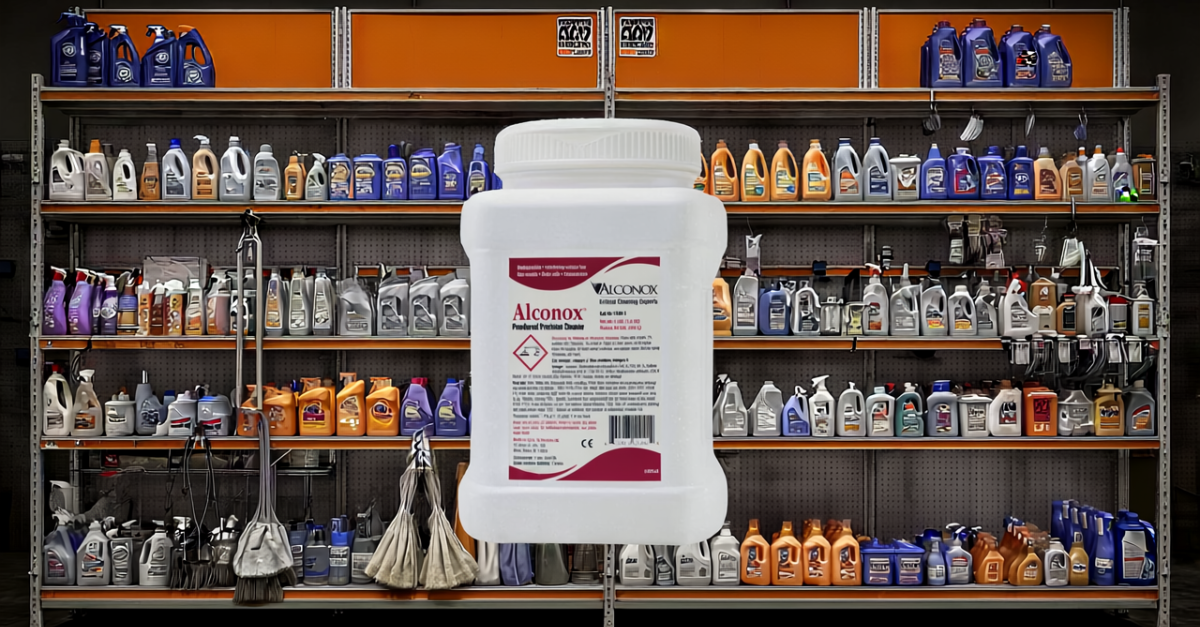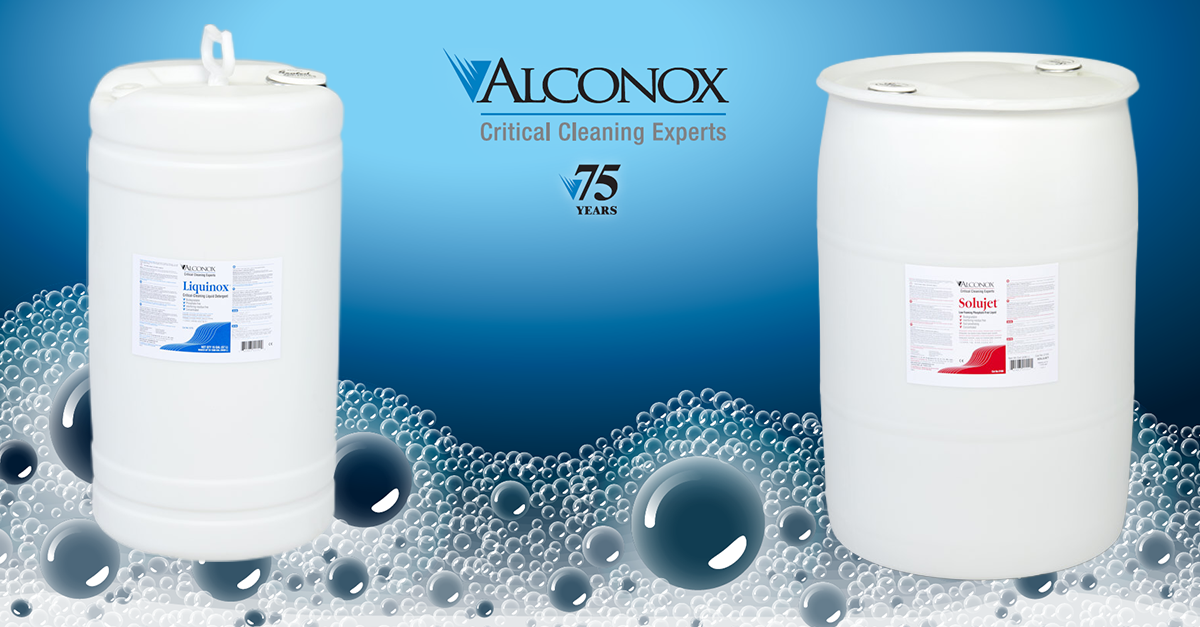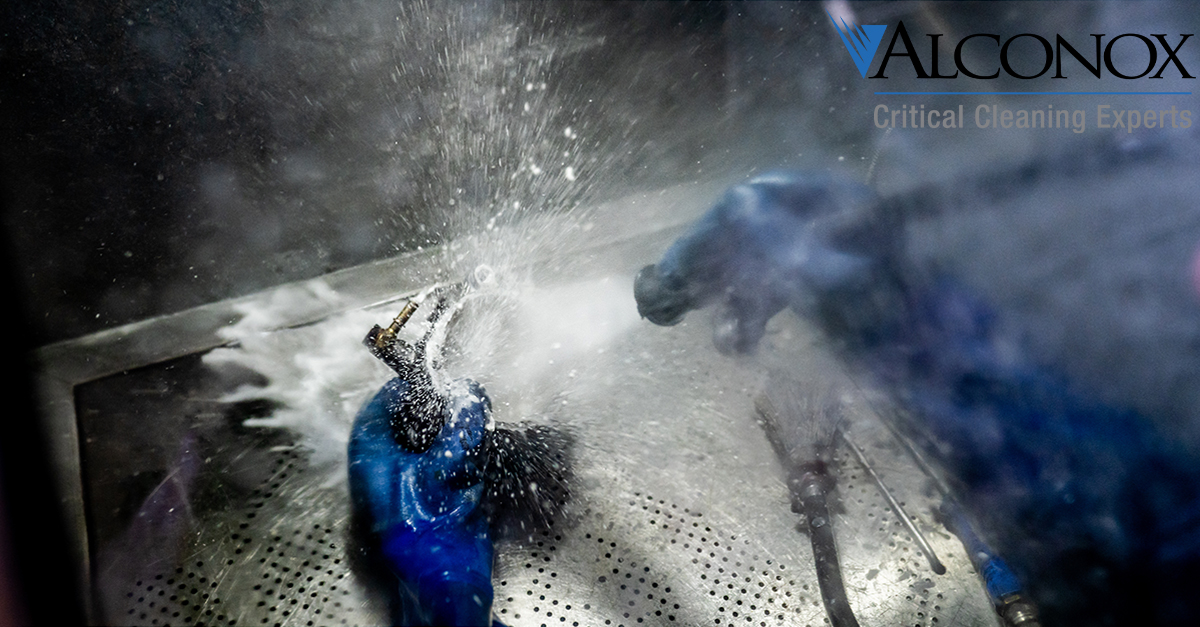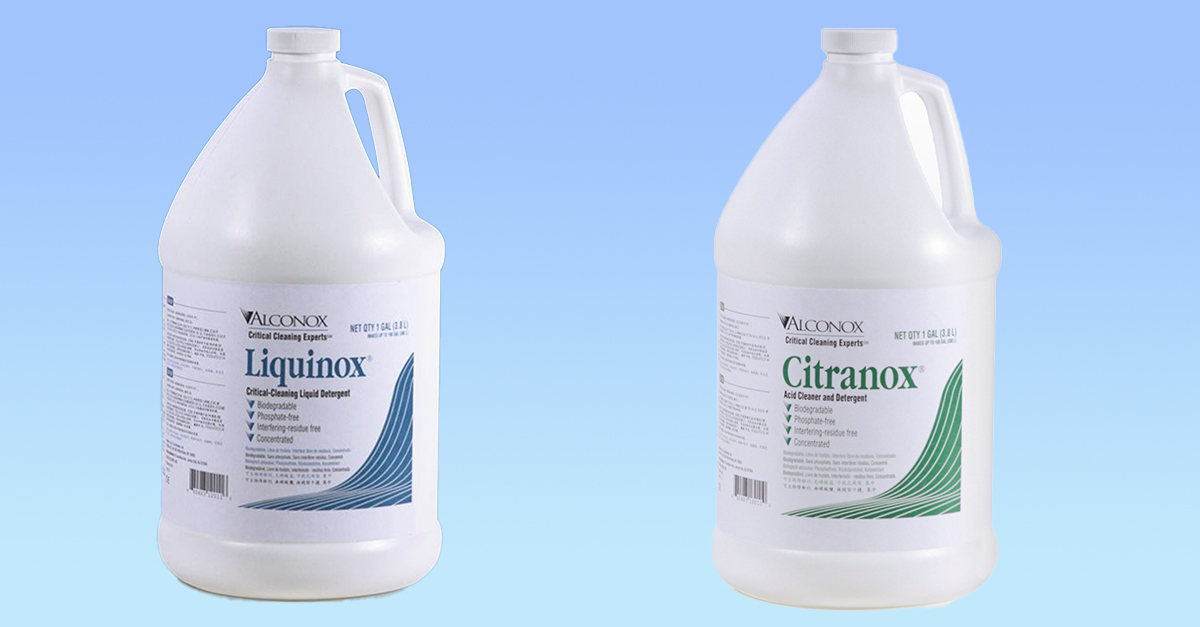“No Residue” Consumer Detergents Vs. Alconox Detergents
Q: We are a production shop that cleans a lot of small parts in an ultrasonic in our lab. A lot of stores sell no residue aqueous cleaners that are cheaper than Alconox, LLC. What would be a reason to…
Application Note: Pumps and Bungs on 15 and 55 Gallon Drums
Alconox, LLC 15 and 55 gal drums have two openings on the top side of the drums. 55 gal drum 15 gal drum Any chemical transfer drum pump that is resistant to water based detergent chemicals (alkali or acid) can…
A Solution For Using An Expired Detergent Solution
Q: Is there any damage that could be caused to our parts if they were washed in the Liquinox Solution after being expired for 5 days? Would reprocessing the products in Non Expired Solution be a safe resolution? A: As discussed here, Using Expired Detergent, the cleaning in expired Liquinox detergent….
Specific Formulations for Cold Water Cleaning?
Q: I’m looking for detergents similar to Liquinox and Citranox, that are specially formulated for cold water cleaning conditions. Can you recommend analogs to the two?
A: For most residues, the detergency of an aqueous detergent is enhanced and hastened by heat.
Liquinox vs. Citranox
Q: What is the difference between Liquinox vs. Citranox? We are using Liquinox for many of our applications but are having trouble with stainless steel cleaning cannulas with a small ID. Is Citranox the answer if the residue is inorganic?
A: Although Liquinox detergent is excellent at cleaning a host of residues, Citranox cleaner is indeed the better choice if we are fairly certain this is a largely inorganic residue.




